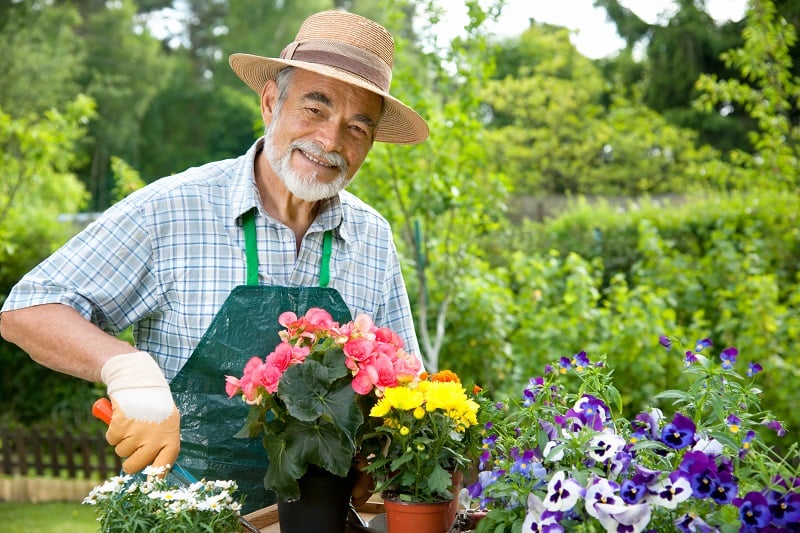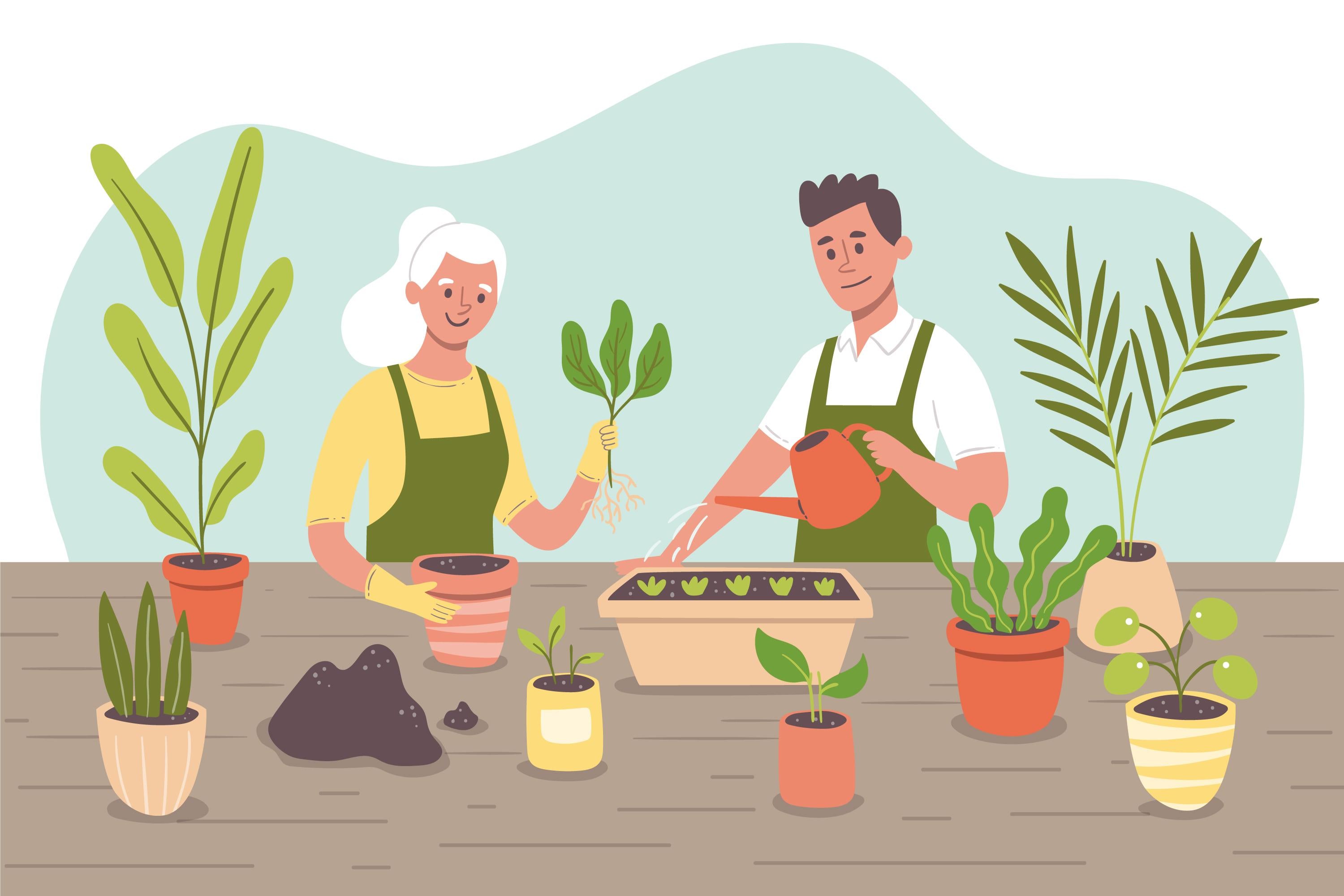Digging In: The Essential Master Gardening Tools for Beginners
Wiki Article
Expanding Environment-friendly Thumbs: a Novice's Journey Into the Globe of Horticulture
Are you excited to obtain your hands dirty and begin growing your very own yard? Look no more! In this short article, we'll take you on a novice's trip into the world of gardening. You'll find out about selecting the right plants, recognizing dirt and garden compost, and crucial horticulture tools. We'll likewise educate you watering and feeding strategies and just how to manage typical yard insects. Get prepared to cultivate your environment-friendly thumb and watch your garden flourish!Choosing the Right Plant Kingdoms
1. You need to evaluate your gardening area and figure out the number of plants that will certainly fit conveniently. This step is critical because overcrowding can lead to stunted growth and condition. Measure the measurements of your garden beds or pots and compute the available space. Think about the fully grown dimension of the plants you mean to grow. Some veggies and natural herbs call for more space than others, so it's important to do your research study.Once you have a clear idea of your gardening space, it's time to pick the appropriate plants. Particular plants grow in complete sunlight, while others choose partial shade. This will assist you pick plants that are fit to your details conditions.
It's likewise important to consider your degree of horticulture experience. Opt for plants that are very easy to expand and need very little maintenance if you're new to gardening. Natural herbs like rosemary, basil, and mint are excellent and flexible for newbies. In addition, think about the length of your expanding period. Choose plants that have a shorter maturity duration if you stay in an area with a shorter expanding season.
Understanding Soil and Compost
To make sure the success of your garden, it is critical that you understand the significance of dirt and compost. Dirt is the foundation of your yard, supplying nutrients, water retention, and support for your plants. It is essential to have a great understanding of your soil kind, whether it is sandy, clayey, or fertile, as this will certainly establish the kinds of plants that will certainly flourish in your garden. Compost, on the various other hand, is a great means to boost the top quality of your soil. It is comprised of natural matter, such as cooking area scraps, lawn waste, and leaves, that disintegrate in time. Adding compost to your dirt will enhance it with important nutrients and boost its structure, enabling for much better water drainage and oygenation. You can either make your very own compost making use of a compost bin or acquisition it from a garden facility. Bear in mind, a abundant and healthy soil is the key to an effective garden, so take the time to recognize your soil and include compost to guarantee your plants thrive.
Important Horticulture Devices
Currently that you comprehend the importance of soil and garden compost, let's check out the essential horticulture tools you'll require to grow your green sanctuary. Among the many standard tools you'll need is a garden trowel. This little portable device is best for excavating tiny holes, transplanting seedlings, and scooping soil. Another essential tool is a yard fork. This strong tool is made use of for loosening up soil, damaging up clumps, and transforming compost. A good pair of horticulture gloves is a must-have to shield your hands from thorns, irritable plants, and dirt. Try to find handwear covers that are durable, breathable, and offer an excellent grasp. A garden hose pipe or watering can is crucial for keeping your plants hydrated. Select a pipe with a spray nozzle that permits you to adjust the water flow and pressure. A strong set of trimming shears or secateurs is essential for trimming and shaping your plants. Search for shears with a sharp blade and comfy takes care of. Lastly, a garden rake is useful for leveling dirt, getting rid of particles, and spreading out compost. With these important tools in your gardening arsenal, you'll be well-equipped to create and maintain your green oasis.Watering and Feeding Strategies

Managing Common Garden Vermin
As a novice gardener, you might experience common garden pests that can unleash mayhem on your plants. These pests can vary from insects like caterpillars, aphids, and beetles, to small pets like rabbits and squirrels. It's important to be able to deal and identify with these bugs effectively in order to secure your plants and guarantee an effective garden.Among the primary steps in managing garden bugs is to routinely check your plants for any indications of problem. Search for eaten fallen leaves, openings in the foliage, or the visibility of small bugs. If you detect any insects, it is necessary to do something about it promptly to prevent them from spreading and triggering more damages.
There are several techniques you can utilize to regulate yard pests. One option is to utilize all-natural predators, such as ladybugs or hoping mantises, to aid regulate the populace of pests. You can also use physical barriers, such as fencings or netting, to keep larger animals like bunnies out of your garden. Additionally, there are organic insect control sprays offered that can assist prevent and get rid of typical yard bugs.
Bear in mind, prevention is crucial when it comes to dealing with garden parasites. Maintaining your yard tidy and complimentary of debris can help lower the chance of a problem. Consistently getting rid of weeds and dead plants can likewise assist eliminate concealing areas for pests.

Conclusion
By choosing the right plants, recognizing soil and garden compost, using necessary gardening tools, and grasping watering and feeding methods, you have set on your own up for success. Don't fail to remember to stay alert in dealing with common garden pests to ensure your plants prosper.Dirt is the foundation of your yard, providing nutrients, water retention, and assistance for your plants. It is essential to have an excellent understanding of your soil type, whether it is sandy, clayey, or fertile, as this will determine the types of plants that will thrive in your garden. Remember, a fertile and healthy and balanced dirt is the key to an effective garden, so take the time to comprehend your dirt and incorporate compost to guarantee your plants grow.
As a beginner gardener, you may run into usual garden parasites that can create havoc on your plants. gardening tips for beginners It's essential to be able to deal and identify with these parasites effectively in order to protect your plants and make sure an effective garden.
Report this wiki page